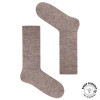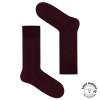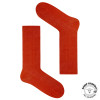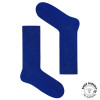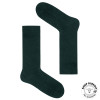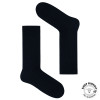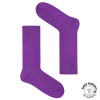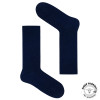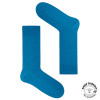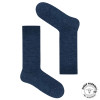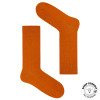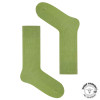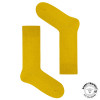For the sake of animal welfare - mulesing free wool socks
Merino is one of the oldest breeds of sheep. These majestic animals are highly resistant to extreme temperature changes, all thanks to their unique wool. Among its many advantages are thermoregulation, moisture absorption, anti-static, lightweight and resistance to odor absorption. It is not at all surprising that merino wool is considered one of the most valuable natural raw materials. In addition, its sourcing favors the environment. Sheep have to be sheared anyway, and wool itself is counted among the group of renewable raw materials. At the same time, wool products maintain their impeccable form for a very long time, and in addition, the material is completely decomposable. It would seem that there are no bad sides to this, but at this point comes the practice of mulesing, which has little to do with the concept of ethics. What exactly does it consist of, and why is it so important to buy only mulesing free wool socks?
Mulesing free, or how to take care of the ethics of sheep shearing
Mulesing is a breeding technique that originated in Australia in the 1930s. The method involves cutting away patches of skin near the anus of the sheep. Unfortunately, this happens in inhumane conditions, as the animals are not anesthetized in any way, and the skin itself is not even bandaged. The tissue scarifies over time, but before this happens the animal is subjected to horrendous pain. Why is mulesing performed and what is involved in obtaining wool in a mulesing free manner? The hindquarters of merinos often get dirty through facilitated contact with moisture and feces, resulting in the creation of an environment ideal for the proliferation of maggots. This results in flies (Lucilia cuprina) nesting in the folds of the sheep's skin, which then lay their eggs there. This not infrequently becomes the cause of dangerous infections for sheep, in turn, for breeders, it is associated with considerable losses of wool. Although proponents of mulesing claim that they want to prevent animals from suffering, they are actually condemning them to a different kind of pain; moreover, open wounds also provide an environment conducive to the proliferation of insects. One organization that has been fighting for years in favor of mulesing free wool harvesting is PETA. Worth noting, mulesing is not at all necessary! There are other alternative methods that do not contribute to the suffering of sheep, but involve greater expense, making them rejected by some farmers as unprofitable. As of 2018, mulesing has been banned in New Zealand, which is billed as a crime there. Unfortunately, within Australia, which leads the way in merino wool production, there is only a voluntary ban, which does not convince most breeders. This is why publicizing the issue of mulesing free is so important. Consumer awareness has a significant impact on product demand. Today mulesing free wool is sourced not only from New Zealand, but also from many countries in Europe and South Africa. When buying socks made of mulesing free wool, be sure to look for markings indicating the origin of the wool. We can guarantee that all the merino socks available from us were created specifically from mulesing free wool. Even small everyday choices lead to bigger changes that can change the world for the better over time.
